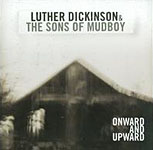Home » Jazz Articles » Live Review » Playing for Change at the Keswick Theatre, Glenside, PA
Playing for Change at the Keswick Theatre, Glenside, PA
Keswick Theatre
Glenside, Pennsylvania October 27, 2009
It is not a word that should be used lightly. However, when your video has been viewed twenty million times on YouTube, you might have enough credibility to be considered a phenomenon. Playing for Change began as a concept, developed into a video, and morphed into a band touring world-wide to enthusiastic fans who have learned of them through the internet and their recent PBS special.
It all started in 2005 when videographer Mark Johnson decided to start a "multimedia movement created to inspire, connect, and bring peace to the world through music." He began with a Santa Monica, California street performer, the late Roger Ridley, whom he recorded playing guitar and singing a soulful version of Ben E. King's "Stand By Me." From there, he took his recording and equipment to over twenty-five cities around the world to have other street performers add their parts to this and other tunes he recorded. Although the musicians never met, his skillful editing brought together all of their voices into a series of videos that let the viewer know immediately that music is a universal language, one that can connect us like no other. Johnson was able to cobble together a series of tunes and interviews into a popular program shown this past year on PBS during its fundraising drive, the results of which can be seen at playing for change.
Earlier this year, the band came together and began a tour that would attract thousands who had come to music venues to see and experience the musicians they had met on the videos. Johnson had collected over 100 musicians to work with him in his travels, but on this night it was a select group of eight, including vocalist Clarence Bekker from Amsterdam, guitarist Louis Mhlanga from Zimbabwe, keyboardist Steve Molitz from Los Angeles, singer Titi Tsira from South Africa, drummer Peter Bunetta from Los Angeles and a show favorite, singer and harmonica player Grandpa Elliot from New Orleans. The band was rounded out by great percussion, singing, and bass—international players from Ghana, the Congo, and Puerto Rico.
The band played to a full Keswick Theatre audience that swayed and cheered at music by now familiar, as if the musicians had been playing together for years, rather than for the few weeks of the tour. These were world-class musicians playing world music—a great example of how music really is a universal language that can be spoken fluently among gifted musicians from different parts of the globe. With drummer Bunetta able to switch easily among various culturally specific beats, the band played to the heartbeat of the particular country of origin, making the experience authentic to the listening audience. Adding to the experience was the fully expressive dancing of the singers and instrumentalists as they threw their bodies into the tunes and expressed themselves through movement.
Singer Tsira was a case in point: she sang with passion and danced with abandon when she was not at the microphone. Bekker was outstanding as a vocalist as he was able to hit high notes with great expression. Bekker literally throws himself into his singing, several times coming up on his toes to hit high notes. With a great smile, he made the audience feel good as he sang such songs as "Bring It On Home To Me," his original tune "Mr. Morality," and a great duet with Grandpa Elliot "Change Is Gonna Come." All of these tunes were backed up by great musical performances by the band, especially guitarist Mhlanga. Mhlanga was quick, melodic, and simply dazzling in his guitar work, drawing great applause from the impressed Keswick audience. It made one realize that unsuspected talent can be hidden out of sight in other parts of the world, and how fortunate one is to be exposed to such talent with the Playing for Change band.
But no doubt the evening's favorite was Grandpa Elliot. Elliot, a short, stout, grey-bearded man in jean overalls and a ragged hat, is a favorite street performer in New Orleans. In years past, he could be seen playing a blind grandfather of blues performer Stoney B on Royal Street in New Orleans. He has since lost most of his own vision, but certainly not any of his talent. Grandpa Elliot is probably the best harmonica player you have never heard. He started playing the instrument as a young boy, as well as singing and tap dancing in the French Quarter. After a short theater stint in New York as a child with his mother, he returned to New Orleans to write songs, sing some background, and make a few 45's of his own in the 60's and 70's. But most of New Orleans knows him as the beautiful street crooner who can play some of the most soulful harmonica you'll ever hear.
Elliot was no less stunning on stage with the Playing for Change band; in fact, he was one of the stars on the band's video Stand By Me. On this evening he took several parts of that tune as well as duets in "Change is Gonna Come" and "Bring it on Home to Me," in addition to originals such as "When You Got Heartache" and a catchy Calypso number "Sugar Is Sweet." His ever-present comical, sweet face, beautiful voicings, and exquisite harmonica playing had everyone talking about what a talented musician he is and many wondering how he had not been discovered earlier in his career. But as Elliot himself said in a Playing for Change video, "New Orleans is my home and it would take a bulldozer to pry me out." Many were happy that he at least left for the tour so they could have the pleasure of hearing his talent.
When the audience called for an encore, the band obliged with a Michael Jackson tribute involving the whole band in an exciting ending to the concert that included Bekker belting out and moon-dancing to "Billie Jean" and other tunes made popular by the late pop icon. As the band departed the stage, Grandpa Elliot was noticeably, and purposely, left at his seat. Looking a bit lost as if his guide that helped him through the night did not come for him, he gave a shrug and began singing "Amazing Grace" a cappella as he has done almost daily in the French Quarter of New Orleans. It was a great ending to a great show. This was a feel- good night as the band played, swayed, danced, and brought everyone into its culture as the tour and the musicians intended, bringing understanding and peace through music.
Tags
PREVIOUS / NEXT
Support All About Jazz
 All About Jazz has been a pillar of jazz since 1995, championing it as an art form and, more importantly, supporting the musicians who make it. Our enduring commitment has made "AAJ" one of the most culturally important websites of its kind, read by hundreds of thousands of fans, musicians and industry figures every month.
All About Jazz has been a pillar of jazz since 1995, championing it as an art form and, more importantly, supporting the musicians who make it. Our enduring commitment has made "AAJ" one of the most culturally important websites of its kind, read by hundreds of thousands of fans, musicians and industry figures every month.























